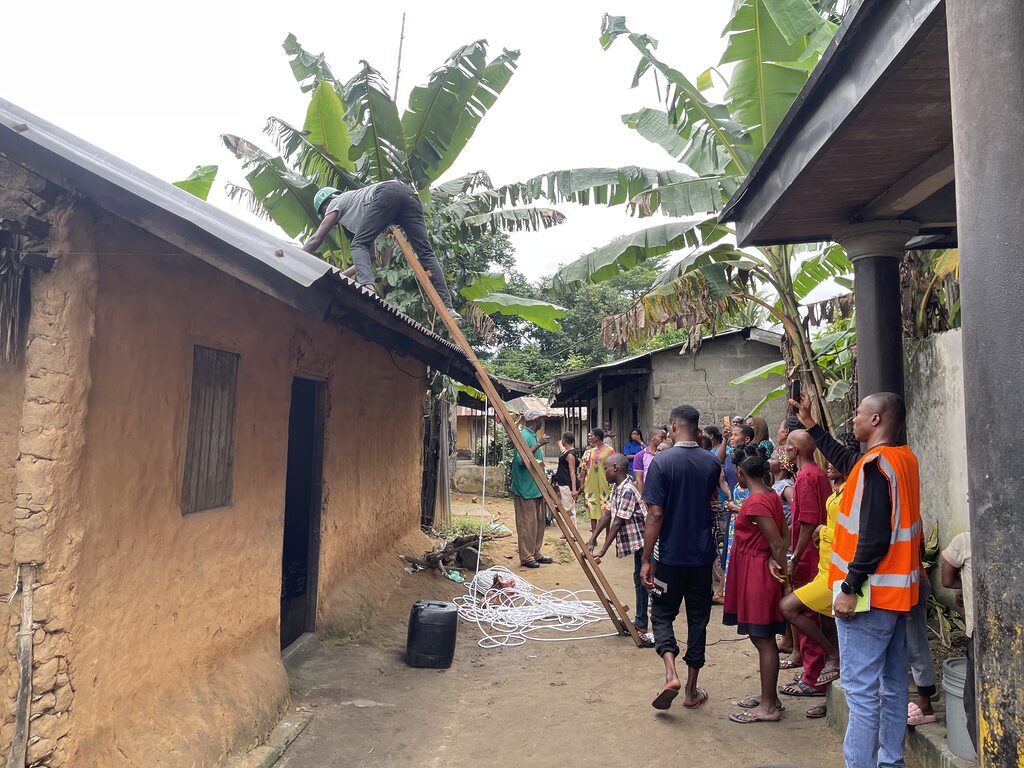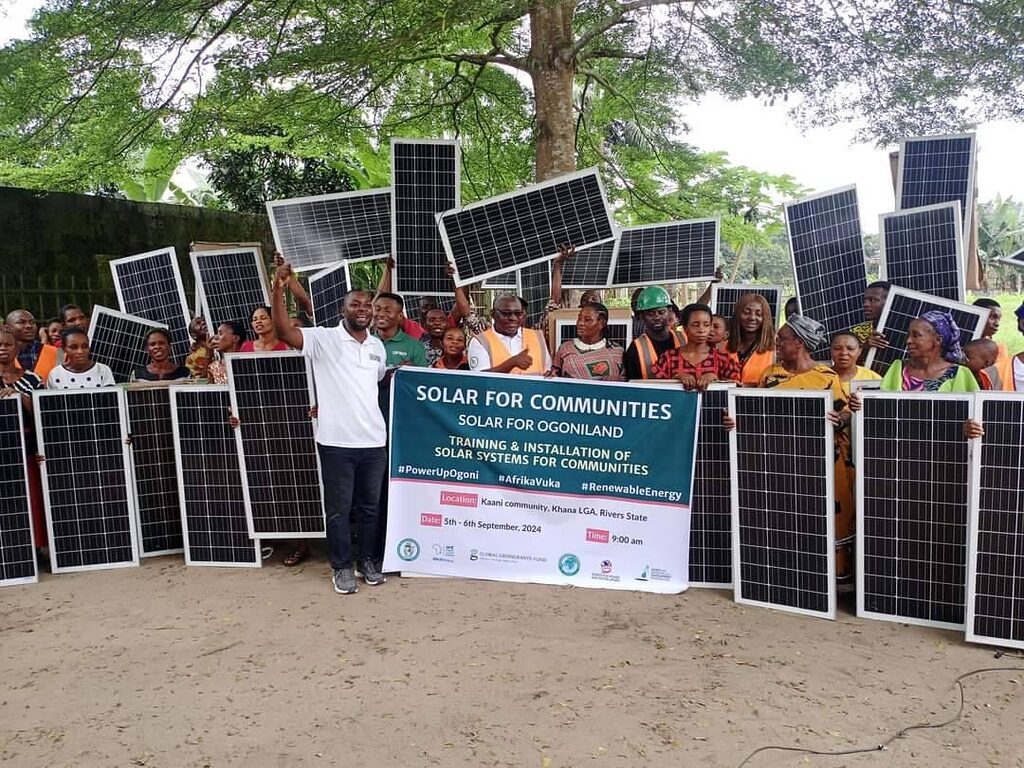Energy poverty remains one of the most debilitating issues facing developing nations, particularly in Africa. This challenge has significantly slowed the transition to cleaner and renewable energy across these regions. With more than 50% of Africa’s population disconnected from the national power grid—and a significant portion of those connected unable to access reliable electricity for even 20 hours a day—the impact on productivity and livelihoods is severe. Energy access has become a critical need for driving economic growth and sustainability in developing nations.

Our Solar for Communities Initiative in Kaani community, Ogoniland provides a two-pronged solution: first, addressing the energy access needs of households using renewable energy, and second, demonstrating the sustainability and effectiveness of these energy sources in meeting the needs of over 600 million people across Sub-Saharan Africa who still lack access to electricity when scaled.
Kaani, located in the Niger Delta region of Nigeria, has suffered from a lack of access to electricity since its inception in the 15th century. Despite the region’s oil wealth and ongoing oil exploration, the community has been plagued by environmental pollution and remains disconnected from the national power grid. In the absence of reliable electricity, residents have relied on kerosene lamps and biomass for lighting, which not only fail to provide adequate illumination but also lead to indoor air pollution and respiratory illnesses.
Through the Solar for Communities Project, GIFSEP and its partners trained local residents and distributed complete solar systems to 50 households in Kaani. These systems have replaced the community’s reliance on kerosene and biomass with clean, renewable energy. The solar systems provide reliable lighting and phone charging solutions, saving residents the amount they previously spent on charging phones.
The impact has been transformative. With reliable access to solar power, Kaani residents now enjoy clean energy in their homes, improved indoor air quality, and enhanced productivity. This initiative has not only met immediate energy needs but also served as a model for other communities across Sub-Saharan Africa.

Initiatives like this are made possible through the support of organizations such as the Global Green Grant Funds (GGF) and 350Africa, which funded the project in Kaani. Continued investment in renewable energy infrastructure is crucial for scaling these solutions to reach more communities across Africa. The success of the Solar for Communities Project in Kaani is a testament to the power of renewable energy to transform lives. With continued support and investment, more communities across Africa can be empowered to break free from energy poverty and embrace a cleaner, more sustainable future.
